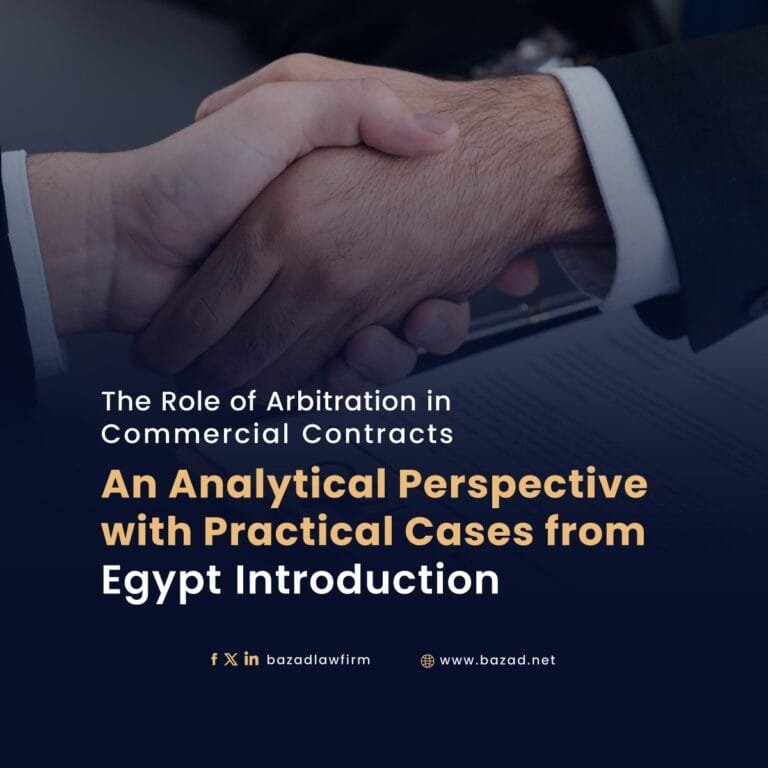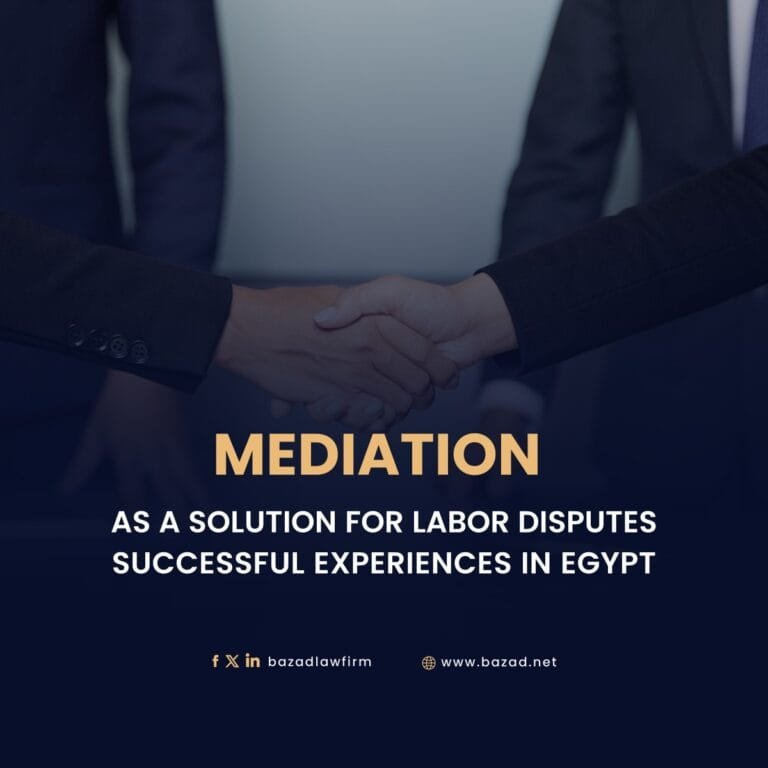
Mediation in Egypt as a Means of Dispute Resolution
Introduction
Mediation is an alternative dispute resolution (ADR) method that parties resort to avoid the complexities of judicial procedures. In Egypt, there has been growing interest in this method as an effective and rapid way to resolve disputes, given its flexibility, speed, and cost-efficiency compared to traditional litigation.
Definition of Mediation
Mediation is a voluntary, non-binding negotiation process facilitated by a neutral third-party mediator. The mediator’s role is to assist the disputing parties in reaching a mutually acceptable settlement. Unlike arbitration or litigation, mediation focuses on dialogue and understanding rather than imposing solutions.
Legal Framework for Mediation in Egypt
Mediation in Egypt is regulated by several laws and regulations, including:
- Egyptian Arbitration Law No. 27 of 1994, which includes provisions encouraging the use of mediation prior to arbitration.
- The Executive Regulation of the Civil and Commercial Procedures Law, which organizes judicial mediation procedures as a form of amicable settlement.
- Laws governing commercial and investment disputes, where mediation is introduced as a preliminary option for dispute resolution.
Advantages of Mediation
- Flexibility: Mediation is not bound by strict legal procedures, allowing parties to control the process.
- Speed: Mediation is often completed in a shorter time frame than court proceedings.
- Cost-effectiveness: Mediation involves lower costs compared to litigation.
- Preservation of Relationships: Mediation reduces tension and conflict, helping to maintain personal or business relationships.
- Confidentiality: Mediation ensures that the details of the dispute remain private, safeguarding the parties’ interests.
Steps of the Mediation Process
- Selecting the Mediator: A neutral mediator with the necessary skills and experience is appointed.
- Mediation Sessions: Sessions are held between the parties in the presence of the mediator to clarify positions and identify points of contention.
- Proposing Solutions: The mediator offers suggestions based on the discussions.
- Final Agreement: The agreed-upon solutions are documented in a written agreement binding on the parties.
Mediation in Commercial Disputes in Egypt
Mediation has particularly flourished in commercial disputes due to the complexity and high costs of such cases. It is an effective tool for local and international companies to resolve conflicts amicably and quickly while maintaining business continuity.
Challenges Facing Mediation in Egypt
- Lack of Awareness: Many individuals and institutions are not fully aware of the benefits of mediation.
- Absence of Unified Legislation: The legal system faces challenges due to the lack of a unified framework governing mediation.
- Insufficient Number of Qualified Mediators: The Egyptian market lacks an adequate number of professional mediators.
Conclusion
Mediation is one of the most significant dispute resolution methods in the modern era, contributing to saving time and effort while reducing judicial disputes. Promoting a culture of mediation and developing its legislative framework in Egypt are essential steps to meet societal needs and achieve justice effectively and flexibly.
References
- Abdel Hamid, Ahmed. Alternative Dispute Resolution Methods. Cairo: Dar Al-Fikr, 2015.
- Hussein, Mohamed. Alternative Judiciary in Egypt. Alexandria: Dar Al-Matbouat Al-Jameya, 2018.
- Egyptian Arbitration Law No. 27 of 1994.
- Executive Regulation of the Civil and Commercial Procedures Law.
- Mohamed, Ali. Encyclopedia of Mediation and Arbitration. Cairo: Anglo-Egyptian Library, 2020.






